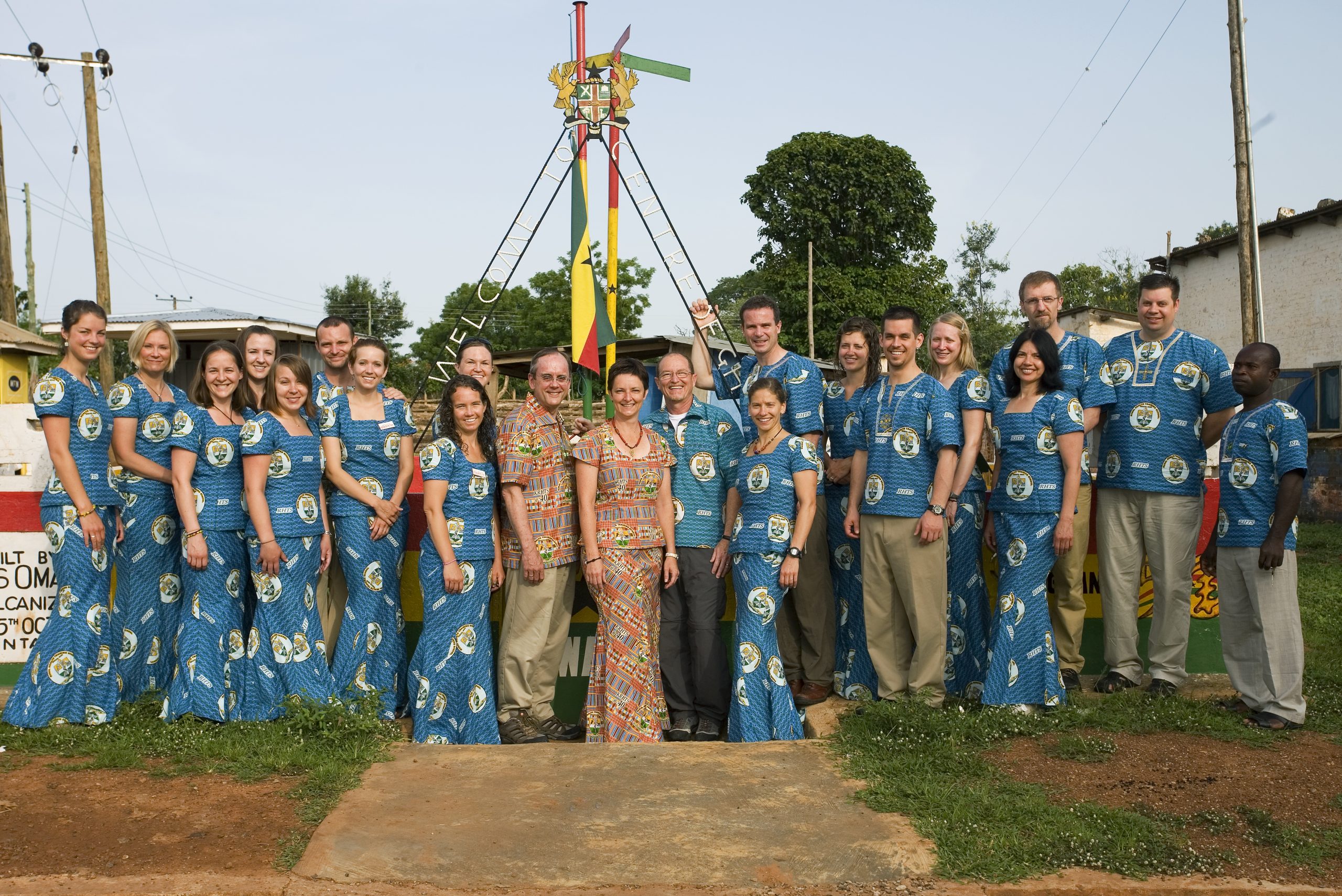In 2007, Nadia Cobb, PA-C, M.S., began working with Physician Assistants in Ghana to care for rural and underserved populations providing primary care. These PAs see between 80 and 100 patients a day. This is a much-needed service; Ghana has less than one physician for 10,000 people, in a country of 24 million. Cobb learned from the Deputy Minister of Health in Ghana that they have no continuing medical education for the PAs. As there is no Internet or even mail service, it is very difficult to send textbooks, instructional videos, or even medical magazines to the rural physician assistants of Ghana. Some of the PAs have been practicing for 20 years but have not received further education since they finished their official schooling. Cobb assesses what information and materials the medical professionals need, and she comes prepared to add to their skill sets and knowledge.
After learning about the difficulties concerning continuing education for the PAs of Ghana, Cobb started the Ghana Clinical Medicine Service Elective. Students from the University of Utah travel to Ghana where they are paired with PAs and patients for two weeks where they work in a clinical setting. The students are exposed to patient care and medicine. They are also able to learn about health care in Ghana.
During the second half of the yearly trip, Cobb and others educate the PAs of Ghana. Cobb comes prepared with knowledge of what has changed in medicine, resources, and policy so that she and her colleagues can efficiently teach the PAs. The educators then give the Ghanaian PAs a thumb drive with the lectures on it and instruct them to share the information with those who could not attend. The program makes it possible for PAs to educate one another in place where their work is desperately needed. Physician assistants in Ghana are the face of the medical workforce. Because they see so many patients a day, Cobb’s program quickly touches millions of lives.
As a result of Cobb and her colleagues’ efforts, Ghanaian policy has changed and PAs are now required to have continuing medical education in order for them to be licensed. Many PAs in Ghana have now been inducted into the Medical and Dental Council, which regulates healthcare.
Many of the departments of the University of Utah’s School of Medicine have joined the group that travels to Ghana to teach. The program brings people with diverse medical interests together as they work to change the medical field in a place that desperately needs it.
Today, Nadia Cobb represents the University of Utah and the Physician Assistant profession on a large scale. She is the only PA working with the World Health Organization as she researches the direction that global healthcare is headed. Not surprisingly, Cobb is specifically focused on primary healthcare for rural and underserved people through education that empowers communities.
Cobb desires to “open the doors for PAs globally, and to continue to represent the University of Utah.”
For more information on the University of Utah Physician Assistant Program:
http://medicine.utah.edu/physician-assistant-program/program/international/index.php

